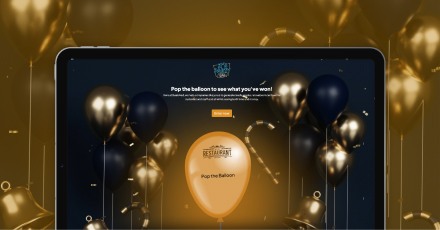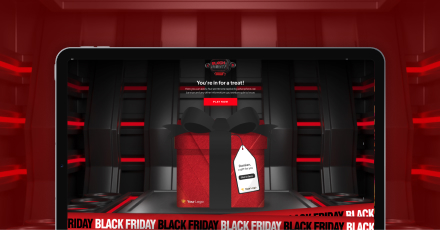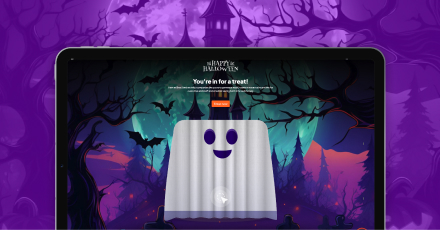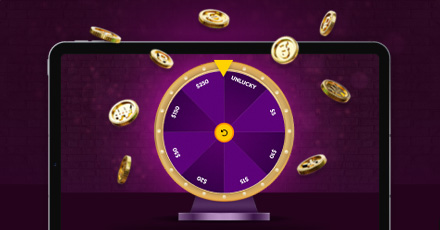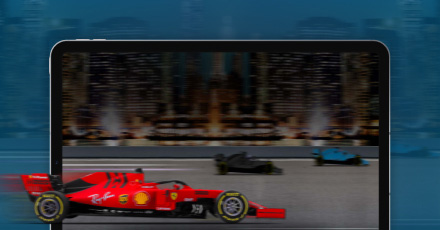The hospitality industry is evolving rapidly, and Gen Z is becoming an increasingly important demographic for hotel marketers to engage with. As a generation that craves authenticity, meaningful experiences, and affordability, Gen Z is looking for hotels that offer value and purpose. Effective marketing and promotions are critical to attract customers and increase revenue in any business. But how do you stand out from all the noise in today’s saturated hotel industry and catch the fleeting eye of the younger generation? Gamification.
As the only true “digital native” generation, Gen Z has grown up entirely on screens. This means that traditional marketing efforts won’t work with this demographic. Their attention spans are short yet they seek engagement, interactivity, and innovative experiences with brands. Gamification as a hotel marketing strategy for attracting Gen Z works because it involves injecting an element of fun and play into your promotions. It allows hotels to attract a younger audience while increasing customer engagement, differentiating themselves in a crowded landscape, and establishing customer loyalty. In this post, we’ll explore some top tips for hotel marketing to Gen Z, including understanding their travel trends and creating experiences that resonate with them.
Stats to Consider
• The global spending power of Gen Z is projected to reach an impressive $143 billion, comprising approximately 40% of the consumer base.
• A significant 70% of American millennials and Gen Z travelers actively seek out different experiences from that of their family and friends. In China, this increases to a whopping 90%.
• Emphasizing their tech-savvy nature, around 80% of Gen Z travelers use their smartphones for both researching and booking their travel arrangements.
• Gen Z has a preference for booking accommodations through online travel agencies.
• Projections indicate that by 2025, Millennials and Gen Z consumers will contribute to a substantial 45% of luxury sales.
Top Tips for a Gamified Hotel Marketing Strategy for Gen Z
1. Strong Online Presence
Being digital natives, Gen Z heavily relies on the internet for researching and booking their travel accommodations. Therefore, establishing a robust online presence is critical. A well-designed website, active social media profiles, and strategic listings on travel platforms can significantly enhance your hotel’s visibility and reputation. Social media also provides an opportunity to show off your hotel’s exclusive features, offerings, and experiences. Hotels that effectively leverage their online presence to engage with their followers on social media are more likely to grab the attention and interest of Gen Z travelers.
Gamification is an effective strategy for appealing to a younger audience and boosting your hotel’s online presence. Consider Incorporating automated promotions into your website to make the booking process more fun and memorable for a younger demographic. BeeLiked offers a secure and easily integrated solution that makes the merging process with your existing systems smoother. You can draw visitors to your website via social media to play a brief digital game like spin-the-wheel where your followers spin for a chance to win enticing prizes or exclusive discounts at your hotel. This will result in increased traffic to your website and shareable content that your customers can spread across social media.

2. Sustainability and Ethical Travel are Key
Gen Z has a strong commitment to ethical and sustainable practices. This translates into a conscious choice to opt for accommodations with a minimal environmental impact and engage in activities that contribute positively to local communities and economies. Instead of crowded tourist spots, they prefer remote destinations that are eco-friendly. They also look for hotels and lodgings that have responsible and sustainable practices. For example, they are more likely to support places that reduce waste and use renewable energy.
Gen Z travelers are not only conscious about where they stay but also about how they get around. Sustainable transportation like trains or community buses is more appealing to this generation. They are also happy to take a walk or bike to explore their surroundings. Highlight the accessibility to these travel options on your hotel’s website and interesting places within walking distance.
3. Affordable Prices
Gen Z travelers are still experiencing an increase in their purchasing power and therefore, they seek hotels that offer good value for their money. With the current economic situation, many younger millennials and older Gen Zers are working multiple jobs, taking on side hustles, and participating in the gig economy. Consequently, they are keen on making wise spending decisions and ensuring that their hard-earned money is put to good use. Therefore, hotels that provide a high level of service, amenities, and affordability are more appealing to this demographic.
To cater to a younger audience, consider inviting them to play a game like pop-the-balloon where they can virtually pop a balloon to reveal exclusive discounts, such as a percentage off on their bookings, special packages with added benefits, or complimentary upgrades to their rooms.

4. Authenticity
Gen Z seeks the authenticity of local living when traveling; they seek to immerse themselves in the culture rather than navigating through crowds of tourists. Hoteliers should consider having a local concierge who can guide these guests to hidden gems off the beaten path. However, being authentic means more than just offering great experiences to your customers. It also requires having a clear and honest brand identity. This means being transparent about who you are as a company and what you stand for.
Having grown up with a barrage of adverts on their screens, Gen Z maintains a healthy skepticism about business intentions. To resonate with them, embrace user-generated content and consider collaborating with relatable influencers who can capture their authentic experiences at your hotel. Be mindful of your influencer’s content and select someone whose interests and image align with your business and target audience. For instance, an influencer who posts about beach resorts might not be the ideal choice for promoting a hotel in the heart of Paris.
5. Workcations
In the wake of the COVID-19 pandemic, “workcations” have become popular among Gen Z and Millennial travelers. Workcations are essentially a combination of work and vacation, where people can work remotely while enjoying a new environment and culture during their free time. Workcations allow people to break free from the routine of working from home and explore different places without sacrificing their professional commitments. With the mental toll of being confined at home, flexible work conditions have become a priority for younger generations. This trend has important implications for the hospitality industry: workcations encourage off-peak season travel as people can manage their work commitments during quieter times and indulge in a relaxing weekend getaway. To cater to the growing demand for work-friendly accommodations, hotels must offer dedicated workspaces, comfortable furniture, high-speed internet, and other amenities that promote productivity. Hoteliers need to incorporate co-working spaces that cater to their work needs and provide a platform for social interactions.
A game like “unwrap the gift” is a creative way to highlight your hotel’s versatile amenities. You can use this game to reveal new features at your hotel and offer incentives to guests who complete certain actions, such as booking a conference room.

6. Instagrammability and Unique Experiences
Rather than ticking off conventional bucket-list destinations, Gen Zers are chasing experiences that scream “Instagrammable.” What does this mean? Well, it’s all about those picture-perfect moments that rack up the likes and shares on social media. For the younger generation, the visual appeal of a place is a top factor when it comes to travel decisions. The more “Instagram-worthy” a destination is, the higher it climbs on the must-visit list. Think scenic viewpoints, unique street backdrops, and landmarks with jaw-dropping architecture – these are the magnets pulling in Gen Z travelers.
This trend is not just changing where they go; it’s also influencing what they do once they get there. Guided tours now need to lead travelers to the most photogenic spots in a destination, ensuring they can capture that envy-inducing shot. It’s not just about experiencing a place; it’s about creating a visual story to share with the world.
The impact of this “Instagrammability” craze goes beyond the individual traveler. Businesses in the hospitality industry must catch on and adjust their strategies to cater to the visually-driven wanderlust of millennials and Gen Z. From hotels to restaurants, establishments now need to intentionally design spaces that are not just comfortable but also aesthetically pleasing for the ‘gram.
Marketing campaigns must evolve too. Instead of bombarding potential guests with dry information, businesses need to highlight their scenic viewpoints, unique aesthetics, and all those little details that make for eye-catching photos. Hotel marketing for Gen Z is about selling an experience that looks as good on social media as it feels in real life. This shift in focus is not just a passing trend; it’s become a powerful marketing tool. The idea is simple – if Gen Zers can capture the perfect shot and share their dream vacation on Instagram, it becomes a ripple effect. Their friends see it, get inspired, and the cycle continues. It’s organic marketing at its finest – all fueled by the desire to curate a feed that’s as visually stunning as the destinations they visit.
7. Online Reviews
As digital natives, Gen Zers are more likely to trust online reviews and social media recommendations from other travelers than traditional advertising. More than 95% of Gen Zers look for online reviews before booking a stay, so it’s crucial to have good ratings and reviews on websites and social platforms. Nowadays, travelers won’t finalize a hotel booking without first scouring the internet for reviews, making reputation management essential for success. Hotel owners need to be proactive about collecting guest feedback and should actively engage with reviews that require a response.
It’s important to learn as much as possible about your guests to improve their stay at your hotel. One of the benefits of using BeeLiked is that it offers you a creative way to collect valuable data about your clients by creating personalized interactive promotions. After your guests have checked out, send them follow-up emails to hear about their experience and encourage them to leave positive online reviews about your hotel. Surveys are a great way to gather feedback from clients. But instead of using traditional surveys, turn the feedback process into an interactive experience by incorporating gamified elements into the emails. You can encode user data with our InviteLink technology. Adding a personal feel will make the interaction with your hotel memorable and make customers feel valued.

Engage the Next Generation of Travelers with BeeLiked!
If you’re eager to find innovative ways to tailor your hotel marketing strategy to appeal to a younger demographic, BeeLiked is the solution you need! Our platform offers gamified solutions that are ready to use and perfect for engaging a younger audience while gathering valuable insights. Hotel marketers can easily customize promotions to their target audience with our user-friendly interface and robust functionality. Get started with BeeLiked today!
